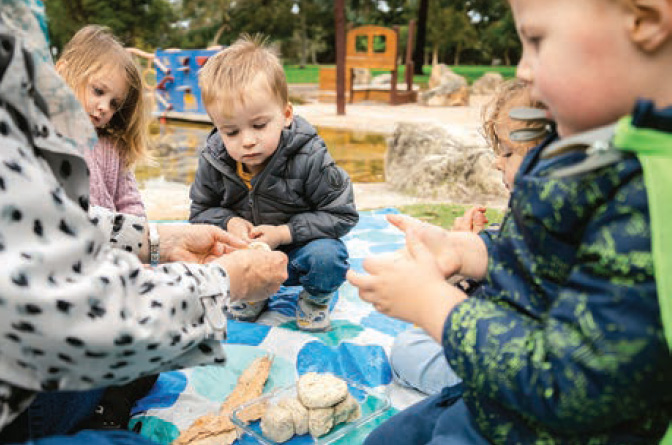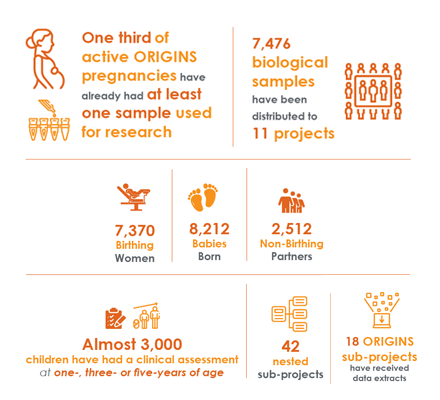Virtual dental checks
A Dental Screening study enabled ORIGINS parents to use a mobile phone to take a photo of their child’s teeth and upload it to an app for remote assessment by dental professionals.
The app enabled high-accuracy screening of healthy children without tooth decay, as well as those with evidence of cavities.
The feasibility study was led by researchers from The University of Western Australia, Dr Somayyeh Azimi, Dr Jilen Patel and Dr Mohamed Estai. The app has ongoing potential for use to overcome barriers of distance for remote communities with a lack of local dental services.
Making the most of screen time
Screen ORIGINS is investigating how families engage with screen technologies and how this may influence child development.
Lead author Dr Rebecca Hood, from Curtin University, said interviews with ORIGINS parents revealed that looking at pregnancy information and apps on their device helped many parents-to-be feel connected to their baby, by giving them a better idea of what was going on. However, using devices for unrelated tasks, such as social media, led to a sense of disconnection from their baby.
Positive engagement through nature
A park play program has helped ORIGINS families to learn about the importance of connectedness to nature for young children.
The Nature Play & Grow program, run in collaboration with Nature Play WA, addresses the trend towards passive screen-based indoor activities — with an associated rise in psychological disorders, chronic disease and a disconnect from the natural environment.
Families met weekly in local parks, participating in outdoor play, healthy eating, physical activity and child development activities. Sessions were facilitated by a child health and developmental ‘play’ expert. They were also asked to listen to weekly educational podcasts and complete questionnaires about their experience.
An evaluation of the program showed both parents and children benefited from participation in the program.
New thinking on food allergies
The PrEggNut and SYMBA studies are examining whether the food a mother eats during pregnancy and breastfeeding affects the chances of her baby developing food allergies.
It was previously thought that babies and children should avoid common allergic foods such as peanuts and eggs, to prevent the development of allergies. But new studies, including one nested within The ORIGINS Project and led by Debbie Palmer - Program Head of Early Life and Life-Course Health at Telethon Kids Institute – have found the opposite.
Initial findings have shown that the early introduction of common allergen foods during pregnancy or earlier in childhood can actually tolerise the baby, so the child has a reduced chance of developing allergies.

